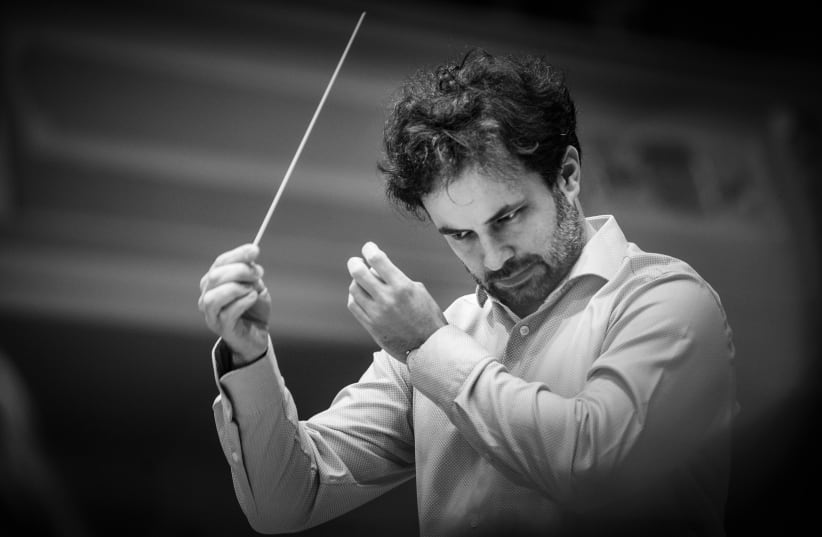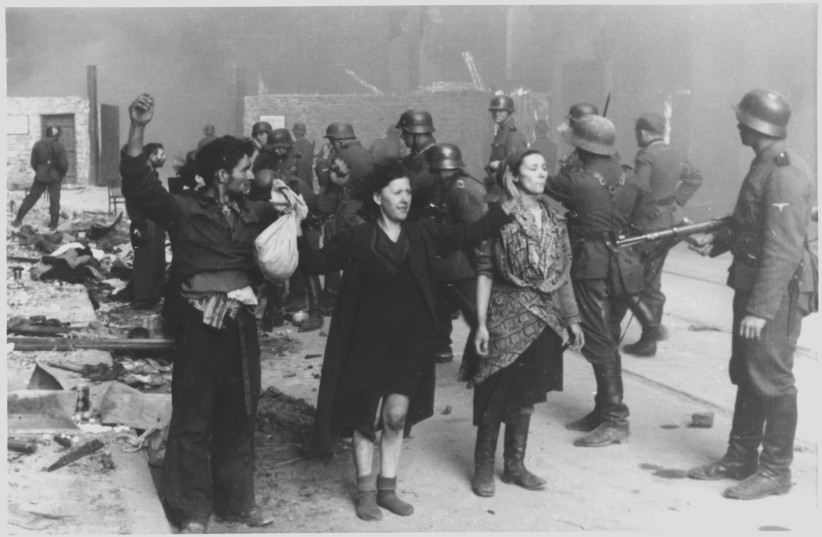The Warsaw Ghetto Uprising began on April 19, 1943. It may not have saved the lives of many Jews, or any at all. But, at least from a historical perspective, it proved to be a brave initiative of immense importance. The United States Holocaust Memorial Museum went so far as to call the uprising “one of the most significant occurrences in the history of the Jewish people”.
It is also said that, rather than seeing it as a bona fide effort to save themselves, the ghetto inmates saw their resistance as an effort to preserve the honor of the Jewish people, and to send out a message of protest against the world’s silence.
Marek Edelman, the only ŻOB (Jewish Combat Organization) commander who survived the Holocaust, said their inspiration to fight was “not to allow the Germans alone to pick the time and place of our deaths”. The inaction of the superpowers of the day is even more resounding considering that as the Germans entered the ghetto, the Allies were settling down to the Bermuda Conference, to discuss the Jewish refugee problem.
Music is highlighting Jewish influence in Polish culture
The 80th anniversary of the momentous event, in which 13,000 Jews were killed compared with German casualties of fewer than 150, will be marked, fittingly, both in Israel and Poland with simultaneous concerts occurring at the end of Holocaust Remembrance Day on April 18 (8 p.m.).
The Tel Aviv leg features the Israel Philharmonic Orchestra (IPO) performing at the Charles Bronfman Auditorium in Tel Aviv under Polish conductor Łukasz Borowicz, with the Polish contribution taking place at POLIN, the Museum of the History of Polish Jews, in Warsaw, courtesy of the Sinfonia Varsovia.
As the POLIN background information notes: “Commemorating the heroes and victims of the Warsaw Ghetto with a symphonic concert might be an original idea for some people. One of the reasons the organizers decided to do so is to remind us about the Jewish Symphonic Orchestra.”
“Commemorating the heroes and victims of the Warsaw Ghetto with a symphonic concert might be an original idea for some people. One of the reasons the organizers decided to do so is to remind us about the Jewish Symphonic Orchestra.”
POLIN, the Museum of the History of Polish Jews
The orchestra in question came into existence under the most trying of circumstances, in the Warsaw Ghetto. At the time, it was probably one of the best Western classical music ensembles in the world. At the zenith of its two-plus year existence, the orchestra comprised around 80 musicians who, prior to the Holocaust, made a living as members of the Warsaw Opera, Operetta and the celebrated Warsaw Philharmonics.
The impressive and venerable cast of incarcerated professionals was augmented in the ghetto by a large number of artists from the more commercially-oriented sectors of the music market, such as popular violinist and dance music composer Artur Gold, pianist-composer Zygmunt Białostocki, and jazz musician and composer Szymon Kataszek. All were murdered in the Holocaust.
The repertoire for the April 18 double-header reflects some of the vision and downright courage of the Jewish Symphonic Orchestra, and its leaders, who included famed violinist, educator and conductor Szymon Pullman who was born in Warsaw and following the Anschluss, fled Vienna for Paris. Tragically, he visited Warsaw in August 1939 and was unable to leave after the German invasion of Poland. Like many members of the Ghetto orchestra he perished in Treblinka.
Kajetan Prochyra, music curator at POLIN, and artistic director of both April 18 concerts was keen to give all the Ghetto ensemble’s orchestra and players their due, mentioning all the conductors and as many instrumentalists as possible. “It means a lot to try to remember them. When we talk about this, this is not about the concept of an orchestra,” he says. “These were actual human beings.”
IN ADDITION to Pullman, the former included Adam Furmański, Marian Neuteich and Israel Hammerman. The player lineup featured violinist Baruch Wacław who, like Pullman, had an opportunity to survive. In 1936 he was invited by Bronisław Huberman to join the Palestinian Symphony Orchestra in Tel Aviv, but was forced to decline for family reasons. Waclaw’s colleagues included fellow violinists Ludwik Holcman, Arnold Kirschbraun, Henryk Waghalter and Jakub Messer, pianist Kazimierz Szpilman – one of the few orchestra members who survived the war – violist Mosze Girguski and double bass player Józef Łabuszyński.
Prochyra made a pivotal and challenging point. The “six million” figure of Jews murdered in the Holocaust is noted with due sadness but, at the end of the day, however emotive that may be, it is just a statistic. The individuals get lost in the numerical bottom line. But, if we try to hone in on the actual people who were torn from their pre-Nazi everyday lives, their homes and families, and from life itself after enduring unspeakable suffering, that becomes simply unfathomable.
“Pullman, a great conductor, got stuck in Warsaw while he was on vacation,” Prochyra continues. “I would love to know more about more of the musicians. I would like to tell the story of each and every musician from the Jewish Symphonic Orchestra – which instruments he played, what he liked, where he was living and so on.”
That, of course, is not possible within the purview of next week’s commemorative concerts, but at least the ensembles can offer a tribute to some of the music the Jewish Symphonic Orchestra performed, no doubt, so excellently. They can also salute Jewish Polish-Soviet composer Mieczysław Weinberg, who died in 1996, and Krzysztof Penderecki, one of Poland’s greatest composers, as well as the late Krzysztof Penderecki, (who would have been 90 years old this year) who died in 2020 at the age of 87. The multiple Grammy Award winning latter’s oeuvre includes a 1961 work for 52 strings called Threnody to the Victims of Hiroshima.
Meanwhile, Weinberg, whose Trumpet Concerto will be performed next week, had to negotiate numerous hurdles to his artistic development – and, indeed, life – undergoing persecution both in Poland and the USSR, where he was imprisoned toward the end of Stalin’s regime on a charge of “Jewish bourgeoisie nationalism.” On the brighter side he befriended feted Soviet composer Dmitri Shostakovich who helped to nurture the twentysomething’s career.
“The whole world of Weinberg’s music is full of his own personal struggle and solitude,” Prochyra observes. “He was not Polish anymore, not necessarily Jewish in Soviet Russia, not necessarily Russian. He somehow lived in a twilight zone or no man’s land. The only citizenship he had was the music world.”
Prochyra notes the inclusion of Beethoven’s Symphony No. 7 in the concert program may come as a surprise to some. It transpires that the great classical composer’s appearance in the lineup is entirely appropriate for what promises to be a moving occasion. “I like to tell the story of the Jewish Symphonic Orchestra. Not enough people know it. For me it is one of the most amazing musical histories that I know of.”
The ensemble’s very existence in the Warsaw Ghetto seems highly improbable but not if we take into account that many concentration camps had orchestras, including Auschwitz. There were, of course, strictures placed on the ghetto troupe, one of which was, it was not allowed by the Germans to play works by Aryan composers. Nevertheless, in keeping with the ghetto inmates’ will to live to the best of their ability, the orchestra was working on a special concert before the end came.
“They tried to play Beethoven’s ninth symphony [which includes a powerful German-language choral part in the last movement] in Hebrew,” explains Prochyra. That was after the orchestra was banned by the German authorities. “Then the deportations began and almost all the musicians were murdered in Treblinka,” he adds.
The Tel Aviv slot sees Borowicz make his debut with the IPO. That also seems a suitable choice in view of the 45-year-old Polish conductor’s career focus on the work of little-known composers, including charts by Polish-Jewish composers.
Prochyra suggests the concerts will arouse mixed emotions as well as being a life-affirming occasion. “It is like Weinberg’s music, which is like a smile behind the tears. So many images come to mind when you listen to his stunning piece of music [the Trumpet Concerto]. And, on the other hand, you have Beethoven’s work which celebrates life. It says ‘we are here, we are alive, and we are still celebrating art and beauty.’ I hope this concert is somewhere between those two emotions – grief and triumph.”
For tickets and more information: https://www.ipo.co.il/calendar/

